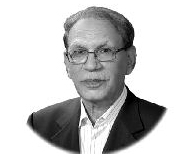MOHAMMAD JAMIL
THE US Special Representative for Afghanistan Reconciliation Zalmay Khalilzad and the Resolute Support Mission Commander General Austin Scott Miller called on Chief of Army Staff (COAS) General Qamar Javed Bajwa in Islamabad on Tuesday. They discussed the United States’ ongoing efforts for sustainable peace in Afghanistan with the Army Chief. Pakistan’s military leader reaffirmed Pakistan’s support for the US efforts and renewed commitment to advance a political settlement to the conflict in Afghanistan. Earlier, senior US officials met with the Taliban in Qatar on Monday to discuss violations of a deal the two sides signed on February 29. The meeting was hosted by Qatar’s Foreign Minister, Sheikh Mohammed bin Abdur Rahman al-Thani. The Taliban delegation was led by Mullah Abdul Ghani Baradar, the head of its political office. Earlier, the Taliban had complained that Americans had attacked civilians and Taliban forces not involved in fighting.
According to the Red Cross, the Taliban released 20 Afghan security force prisoners on Sunday after the government released 300 low-risk Taliban captives, who pledged not to return to the fight and were allowed to go on the basis of various factors including their health, age and length of remaining sentence. The US-Taliban deal had the clause under which the Afghan government would release 5,000 Taliban prisoners, while the Taliban would free 1,000 Afghan security force personnel. The exchange was supposed to have happened by 10 March, allowing peace talks to begin between the Taliban and the Afghan government. Kabul claimed that the Taliban wanted 15 of their top commanders to be released, while the Taliban accused Afghan authorities of wasting time. Last week, a Taliban team met with the government to discuss a comprehensive prisoner swap, but walked out of talks for gradual and slow release of prisoners.
According to US-Taliban joint statement, the United States would reduce the number of US military forces in Afghanistan to 8,600 and implement other commitments in the US-Taliban agreement within 135 days of the announcement of this joint declaration and the US-Taliban agreement. It added that the Afghan Government will engage with the United Nations Security Council to remove Taliban members from sanctions list by May 29, and the US would use its clout to get it done using its leverage of aid. Last month, the US announced $1 billion in immediate aid reductions and threatened to cut $1 billion more next year. However, President Ashraf Ghani, in an address to the nation, said that his government had contingency plans and that aid cuts would not affect central functions. But according to NYT report, several of his senior officials in private as well as lawmakers and economists, expressed deep concern.
The United States cut the aid firstly because Afghan leaders were unable to resolve a political impasse, and secondly Afghan Government has been dragging feet and showed little respect to the US-Taliban Agreement especially with regard to release of prisoners. Afghanistan uses foreign aid not just to meet basic expenses but also for its war against the resurgent Taliban. Ghani is on record having said that his Army would not last more than six months if the United States cut funding. President Ghani should realize that in case he does not resolve differences with the Taliban, ISIS would benefit from the conflict, which had launched attack in Kabul that left at least 25 dead at a crowded Sikh Gurdwara and housing complex. Months of political tension led to a split government where Ashraf Ghani and Abdullah Abdullah declared them president and separately held oath-taking ceremonies. Some officials fear cracks are emerging in the force, which has cost the US alone about $90 billion to build. “The reduction will not only affect the civilian aid provided by the United States, but it will also affect the Afghan military, which heavily relies on US aid,” said Abdul Qader Qalatwal, another lawmaker. “If they don’t receive the support they need, there can be factions within the Army, which may even lead to the division of Afghanistan,” he added.
With a view to help bring peace in war-torn country, Pakistan played a pivotal role in the historic US-Taliban agreement signed on 29 February which paved the way for an intra-Afghan dialogue and peace in Afghanistan. The credit goes to the US and Taliban and also to Russia and China for their efforts for peace, in ending hostilities and by holding dialogue. Of course, much credit goes to Pakistan Government for having brought the Taliban on negotiating table that resulted in a peace deal. Last but not the least, COAS Qamar Javed Bajwa’s contribution to the agreement due to his contacts with the Pentagon must be recognized. In fact, Bajwa Doctrine paved the way for the agreement by eliminating spectre of terrorism on this side of the border that compelled the US to have dialogue with the Taliban. Anyhow, both sides defied predictions by many analysts that such an agreement was impossible, as earlier efforts had proved futile.
There has been a lot of rumours that Haqqani Network is opposed to the peace deal. But in his op-ed article in the New York Times of 20th February captioned ‘What we, the Taliban, want’, Sirajuddin Haqqani conveyed an impression of a seasoned politician, he had assured that the Taliban would honour its commitments. He also focused on the rights of women and committed to take along all sections of society. He stated: “Everyone has lost somebody he loved. Everyone is tired of war. I am convinced that the killing and the maiming must stop… The Taliban was ready to agree on a new, inclusive political system in which the voice of every Afghan is reflected and where no Afghan feels excluded”.
—The writer is a senior journalist based in Lahore.










